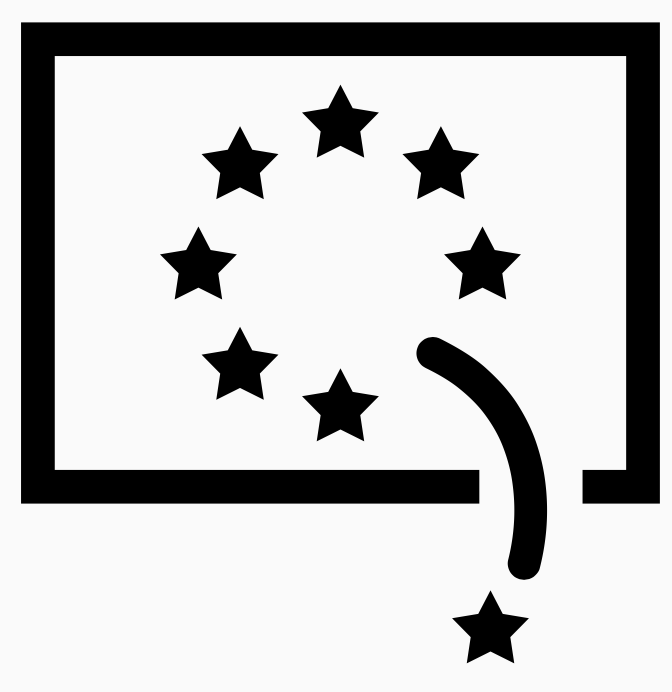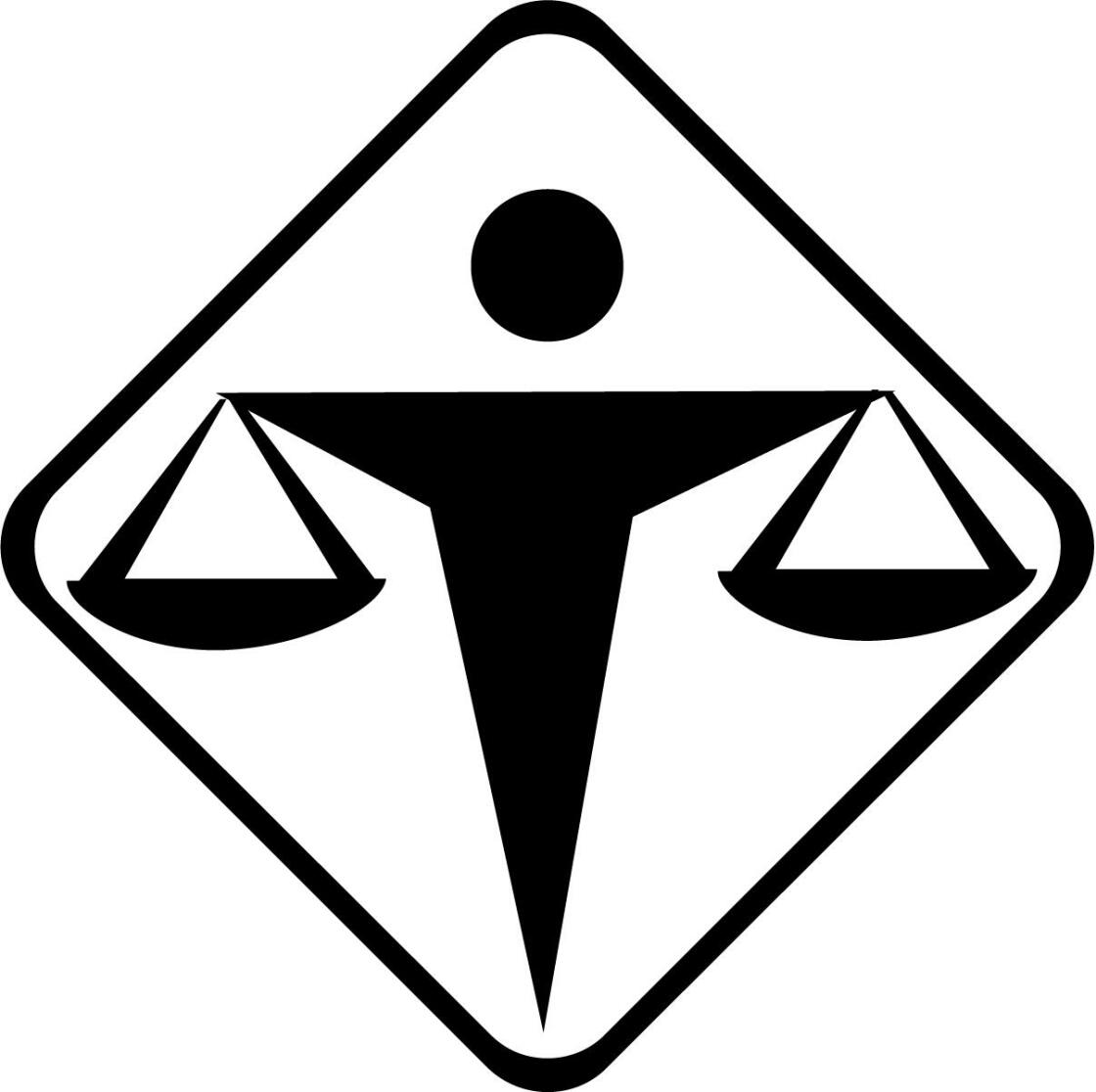| Why Cats and Customs Brokers Hate Triennial Status Reports by Oscar Gonzalez, Attorney Some laws are more nuisance than utilitarian. Take for example the legal requirement that customs brokers file triennial status reports with CBP. CBP sets out those requirements online . These reports are sort of like glorified change-of-address forms, but so much less and so much more. The most that can be said in their defense is that they raise about a million dollars in filing fees (my rough estimate), a pittance when you consider their limited utility. CBP uses the triennial status reports to ask customs brokers to report violations of the conditions of their customs broker license. This strikes me as a lazy and harebrained method of entrusting customs brokers with enforcing the law. News flash: customs brokers are not law enforcement. A customs broker license doesn’t mean that the federal government deputized you. You certainly are not an agent or an employee of the federal government. You owe lots of duties to your customers and you must comply with reams of regulations and stacks of laws when executing those duties, but there is no legal requirement to turn yourself or your customers into federal enforcement authorities for possible violations. Also, what would the incentive be to report your license violations in triennial status reports? Unlike prior disclosures, CBP doesn’t promise mitigation. There is no carrot. Moreover, if you do turn yourself in, you risk losing your license, exactly the thing you’re trying to avoid. All stick. If you don’t turn yourself in, what are the chances that you’ll be caught? If you caught, how is that any worse that if you had turned yourself in at the beginning? CBP ditches this honor system and becomes a pain-in-the-appendix stickler when it comes to forcing customs brokers to file triennial status reports on time. CBP is as inflexible as me doing hot yoga. Granted, filing the triennial status reports is not the most onerous task facing a customs broker, and filing timely forms is kind of what customs brokers are expected to do. Also, customs brokers get two chances under the regulations to file triennial status reports before their license is revoked. Still, missing the deadline is not surprising. It’s hard to remember something when it deceptively appears so trivial and when it pops up only every three years. I can’t think of anything else that comes in three-year increments. Not the Olympics (four years). Not cicadas (seventeen years). Not Halley’s Comet, which visits our corner of the solar system every seventy-five years. About the only other event that comes around every three years is Kattenstoet, the parade in Ypres, Belgium that “honors” cats. During the Middle Ages, the good people of Ypres threw cats from a belfry tower to the town square below to ward off witches. The history books do not say whether the ritual intimidated any witches into leaving town, but I am confident that the intent was felt and accommodated by all parties. CBP could, if it chose, similarly alert customs brokers that their licenses were in jeopardy for not filing triennial status reports before figuratively throwing them off of the belfry tower. It knows how to communicate with customs brokers when it wants to. Case in point. CBP just informed hundreds of people that it revoked their customs broker licenses for not filing their triennial status reports. Revocation is serious. It means that you just lost your customs broker license. While revocation is “without prejudice” and you are allowed to submit a new license application, this is a viable option only if you’ve taken and passed the customs broker exam within the past three years. You can’t ask for reinstatement. It's like trying to run back to the ledge after someone threw you off the belfry. Only Looney Tunes cartoons are capable of that feat. Perhaps reasonable minds will prevail at CBP and triennial status reports will disappear and go the way of faxes. Oops. I forgot that CBP is enamored with and still depends largely on yesteryear's technology, including faxes. (I should probably expect a sternly-worded telegraph from CBP in response to this article. Ha. The joke's on them. I never learned Morse Code). But we’re not there yet. In the meantime, dear customs brokers, don’t forget to file your triennial status reports on time. Otherwise, the good people of Ypres, Belgium may start throwing parades in your honor. Every three years. Splat. Trump Tariffs Update - One way to avoid paying Section 232 or Section 301 Tariffs Let’s say you manufacture in China, but you do not want to pay the Section 301 duties that apply to merchandise from that country. Can you further process your merchandise in another country and thereby claim that the merchandise originated in that third country and not China? It may be possible to change the country of origin from China to this third company. You may be able to add or subtract components and functions. You may be able to tinker with the packaging. The processing should be enough so that the country of origin is now the third country and not China. But how much processing in the third country is enough? Unfortunately, CBP gives conflicting guidance. In N298549 issued on July 31, 2018, steel tubing manufactured in the United States was exported to Mexico where stuff was done to the steel tubing, like painting, before being imported back to the United States. CBP applied the NAFTA “essential character” rule of origin test, i.e., the country where the raw piping came from, in this instance, the USA. Since it was a domestic-origin product, the importer did not owe customs duties, including not owing the Section 232 tariffs that would have applied if the country of origin had been Mexico. The NAFTA rule of origin determined whether the tariff was owed. Now let’s look at HQ H301619 , a second ruling from CBP, but this one issued on November 6, 2018 to completely different results, and this time as applied to Section 301 tariffs, not Section 232. CBP concluded that there are actually two different kinds of country of origins: for marking and for Section 301 tariffs. Here the components were produced in China, but then shipped to Mexico where they were assembled into electric motors. For marking purposes, CBP found the country of origin under NAFTA was now Mexico and no longer China. However, CBP also found that product did not undergo sufficient substantial transformation so that the country of origin for Section 301 purposes remained China with the 25% tariff, even as the importer had to mark the electric motors with Made in Mexico. CBP echoed this bifurcated reasoning but to different results in N302987 , a ruling issued in March 11, 2019. Thus, country of origin for marking purposes may not always be synonymous with NAFTA country of origin and, furthermore, substantial transformation, instead of NAFTA country of origin, may have to be used to figure out if Section 301 tariffs apply. Thus, there are a great many uncertainties when it comes to how to manage Section 232 or 301 tariffs. It is best to consult with an international trade law expert for guidance. We invite your questions. The US Court of International Trade Decides Role of Juries in Penalty Cases Our law firm often represents importers in penalty cases brought by CBP under 19 U.S.C. § 1592. The cases are usually resolved at the administrative level, but CBP constantly threatens throughout to call in its big gun, in the form of the U.S. Department of Justice, to sue to collect the penalty in the U.S. Court of International Trade if the importer does not pay the penalty or agree to sign a statute of limitations waiver, a concession we seldom endorse. Let us assume that CBP refers a penalty case to the US Department of Justice and the DOJ sues an importer. Will a judge or a jury determine the importer’s fate at trial? That was the issue in US v. Univar , a recent case from the US Court of International Trade (CIT). The CIT concluded that when determining whether an importer has a right to a jury trial in a penalty case, culpability must be decided separately from any penalty amount. On the question of whether the importer violated 19 U.S.C. § 1592, the importer may have either a judge or a jury (if the request is timely) decide. However, once the importer is found to have violated 19 U.S.C. § 1592, only a judge may determine the penalty amount. The -importer has no right to have a jury determine the penalty amount. This decision matters because an importer may prefer a jury trial if it thinks that a jury is likely to be more sympathetic to its plight. The Government tends to prefer to litigate before judges (a trial without a jury is called a bench trial) because judges are generally perceived to be less prone to emotional appeals. However, there are no absolutes in litigation and the strategies vary as much as the personalities, facts, and the parties’ financial wherewithal of any particular case. Confused by Tariff Classification? Read this Court Case Classifying imported goods under the Harmonized Tariff Schedule of the United States can be an intimidating and perplexing exercise, but it is a skill that importers and customs brokers must master. It is also a skill that is heavily tested in the customs broker exam. You will not pass the customs broker exam if you do not know how to classify. Fortunately, the US Court of International Trade just issued a wonderful introduction to tariff classification in Quaker Pet Group v. U S (March 29, 2019), a case about how to classify pet carriers. Next time you need to classify anything under the HTSUS, please consider the following explanation. Citations to court cases have been omitted to prevent hyperventilation by non-lawyers: Tariff Classification Generally In a classification case, “the court construes the relevant (competing) classification headings,”… |
 |
Why Cats and Customs Brokers Hate Triennial Status Reports by Oscar Gonzalez, Attorney
Some laws are more nuisance than utilitarian. Take for example the legal requirement that customs brokers file triennial status reports with CBP. CBP sets out those requirements online. These reports are sort of like glorified change-of-address forms, but so much less and so much more. The most that can be said in their defense is that they raise about a million dollars in filing fees (my rough estimate), a pittance when you consider their limited utility.
CBP uses the triennial status reports to ask customs brokers to report violations of the conditions of their customs broker license. This strikes me as a lazy and harebrained method of entrusting customs brokers with enforcing the law. News flash: customs brokers are not law enforcement. A customs broker license doesn’t mean that the federal government deputized you. You certainly are not an agent or an employee of the federal government. You owe lots of duties to your customers and you must comply with reams of regulations and stacks of laws when executing those duties, but there is no legal requirement to turn yourself or your customers into federal enforcement authorities for possible violations. Also, what would the incentive be to report your license violations in triennial status reports? Unlike prior disclosures, CBP doesn’t promise mitigation. There is no carrot. Moreover, if you do turn yourself in, you risk losing your license, exactly the thing you’re trying to avoid. All stick. If you don’t turn yourself in, what are the chances that you’ll be caught? If you caught, how is that any worse that if you had turned yourself in at the beginning?
CBP ditches this honor system and becomes a pain-in-the-appendix stickler when it comes to forcing customs brokers to file triennial status reports on time. CBP is as inflexible as me doing hot yoga.
Granted, filing the triennial status reports is not the most onerous task facing a customs broker, and filing timely forms is kind of what customs brokers are expected to do. Also, customs brokers get two chances under the regulations to file triennial status reports before their license is revoked. Still, missing the deadline is not surprising. It’s hard to remember something when it deceptively appears so trivial and when it pops up only every three years. I can’t think of anything else that comes in three-year increments. Not the Olympics (four years). Not cicadas (seventeen years). Not Halley’s Comet, which visits our corner of the solar system every seventy-five years. About the only other event that comes around every three years is Kattenstoet, the parade in Ypres, Belgium that “honors” cats. During the Middle Ages, the good people of Ypres threw cats from a belfry tower to the town square below to ward off witches. The history books do not say whether the ritual intimidated any witches into leaving town, but I am confident that the intent was felt and accommodated by all parties. CBP could, if it chose, similarly alert customs brokers that their licenses were in jeopardy for not filing triennial status reports before figuratively throwing them off of the belfry tower. It knows how to communicate with customs brokers when it wants to. Case in point. CBP just informed hundreds of people that it revoked their customs broker licenses for not filing their triennial status reports.
Revocation is serious. It means that you just lost your customs broker license. While revocation is “without prejudice” and you are allowed to submit a new license application, this is a viable option only if you’ve taken and passed the customs broker exam within the past three years. You can’t ask for reinstatement. It's like trying to run back to the ledge after someone threw you off the belfry. Only Looney Tunes cartoons are capable of that feat.
Perhaps reasonable minds will prevail at CBP and triennial status reports will disappear and go the way of faxes. Oops. I forgot that CBP is enamored with and still depends largely on yesteryear's technology, including faxes. (I should probably expect a sternly-worded telegraph from CBP in response to this article. Ha. The joke's on them. I never learned Morse Code). But we’re not there yet. In the meantime, dear customs brokers, don’t forget to file your triennial status reports on time. Otherwise, the good people of Ypres, Belgium may start throwing parades in your honor. Every three years. Splat.
| |
 |
Trump Tariffs Update - One way to avoid paying Section 232 or Section 301 Tariffs
Let’s say you manufacture in China, but you do not want to pay the Section 301 duties that apply to merchandise from that country. Can you further process your merchandise in another country and thereby claim that the merchandise originated in that third country and not China?
It may be possible to change the country of origin from China to this third company. You may be able to add or subtract components and functions. You may be able to tinker with the packaging. The processing should be enough so that the country of origin is now the third country and not China.
But how much processing in the third country is enough? Unfortunately, CBP gives conflicting guidance.
In N298549 issued on July 31, 2018, steel tubing manufactured in the United States was exported to Mexico where stuff was done to the steel tubing, like painting, before being imported back to the United States. CBP applied the NAFTA “essential character” rule of origin test, i.e., the country where the raw piping came from, in this instance, the USA. Since it was a domestic-origin product, the importer did not owe customs duties, including not owing the Section 232 tariffs that would have applied if the country of origin had been Mexico. The NAFTA rule of origin determined whether the tariff was owed.
Now let’s look at HQ H301619, a second ruling from CBP, but this one issued on November 6, 2018 to completely different results, and this time as applied to Section 301 tariffs, not Section 232. CBP concluded that there are actually two different kinds of country of origins: for marking and for Section 301 tariffs. Here the components were produced in China, but then shipped to Mexico where they were assembled into electric motors. For marking purposes, CBP found the country of origin under NAFTA was now Mexico and no longer China. However, CBP also found that product did not undergo sufficient substantial transformation so that the country of origin for Section 301 purposes remained China with the 25% tariff, even as the importer had to mark the electric motors with Made in Mexico. CBP echoed this bifurcated reasoning but to different results in N302987, a ruling issued in March 11, 2019. Thus, country of origin for marking purposes may not always be synonymous with NAFTA country of origin and, furthermore, substantial transformation, instead of NAFTA country of origin, may have to be used to figure out if Section 301 tariffs apply.
Thus, there are a great many uncertainties when it comes to how to manage Section 232 or 301 tariffs. It is best to consult with an international trade law expert for guidance. We invite your questions.
| |
 |
The US Court of International Trade Decides Role of Juries in Penalty Cases
Our law firm often represents importers in penalty cases brought by CBP under 19 U.S.C. § 1592. The cases are usually resolved at the administrative level, but CBP constantly threatens throughout to call in its big gun, in the form of the U.S. Department of Justice, to sue to collect the penalty in the U.S. Court of International Trade if the importer does not pay the penalty or agree to sign a statute of limitations waiver, a concession we seldom endorse.
Let us assume that CBP refers a penalty case to the US Department of Justice and the DOJ sues an importer. Will a judge or a jury determine the importer’s fate at trial?
That was the issue in US v. Univar, a recent case from the US Court of International Trade (CIT). The CIT concluded that when determining whether an importer has a right to a jury trial in a penalty case, culpability must be decided separately from any penalty amount. On the question of whether the importer violated 19 U.S.C. § 1592, the importer may have either a judge or a jury (if the request is timely) decide. However, once the importer is found to have violated 19 U.S.C. § 1592, only a judge may determine the penalty amount. The -importer has no right to have a jury determine the penalty amount.
This decision matters because an importer may prefer a jury trial if it thinks that a jury is likely to be more sympathetic to its plight. The Government tends to prefer to litigate before judges (a trial without a jury is called a bench trial) because judges are generally perceived to be less prone to emotional appeals. However, there are no absolutes in litigation and the strategies vary as much as the personalities, facts, and the parties’ financial wherewithal of any particular case.
| |
|
|
 |
Confused by Tariff Classification? Read this Court Case
Classifying imported goods under the Harmonized Tariff Schedule of the United States can be an intimidating and perplexing exercise, but it is a skill that importers and customs brokers must master. It is also a skill that is heavily tested in the customs broker exam. You will not pass the customs broker exam if you do not know how to classify.
Fortunately, the US Court of International Trade just issued a wonderful introduction to tariff classification in Quaker Pet Group v. US (March 29, 2019), a case about how to classify pet carriers. Next time you need to classify anything under the HTSUS, please consider the following explanation. Citations to court cases have been omitted to prevent hyperventilation by non-lawyers:
Tariff Classification Generally
In a classification case, “the court construes the relevant (competing) classification headings,”… the first step, determining the proper meaning and scope of the relevant tariff provisions.
“The HTSUS scheme is organized by headings, each of which has one or more subheadings; the headings set forth general categories of merchandise, and the subheadings provide a more particularized segregation of the goods within each category.” Chapter and section notes of the HTSUS are statutory law, not interpretative guidelines, and are binding on the court. Tariff classification is determined according to the General Rules of Interpretation (“GRIs”), and, if applicable, the Additional U.S. Rules of Interpretation. The “General Rules of Interpretation govern classification of merchandise under the HTSUS, and are applied in numerical order.” Under GRI 1, “classification shall be determined according to the terms of the headings and any relative section or chapter notes.” Unless there is evidence of “contrary legislative intent, HTSUS terms are to be construed according to their common and commercial meanings.” In ascertaining a term’s common meaning, the court may “consult lexicographic and scientific authorities, dictionaries, and other reliable information” or may rely on its “own understanding of the terms used.” “Where a tariff term has various definitions or meanings and has broad and narrow interpretations, the court must determine which definition best expresses the congressional intent.” Although not binding law, courts also look to the Explanatory Notes (“ENs”) to the Harmonized Commodity Description and Coding System, maintained by the World Customs Organization, as persuasive authority on how to interpret and apply HTSUS provisions.
“The HTSUS is designed so that most classification questions can be answered by GRI 1.” “What is clear from the legislative history of the World Customs Organization and case law is that GRI 1 is paramount . . . The HTSUS is designed so that most classification questions can be answered by GRI 1, so that there would be no need to delve into the less precise inquiries presented by GRI 3.” A product is classifiable under GRI 1 if it “is described in whole by a single classification heading or subheading” of the HTSUS; however, “[w]hen goods are in character or function something other than as described by a specific statutory provision -- either more limited or more diversified -- and the difference is significant, then the goods cannot be classified” pursuant to GRI 1.
| |
 |
Did you know? Brexit and Customs Law
Customs law may seem esoteric, but it has always played an oversized role in the world. Whether you agree with him, President Trump has shown that tariffs can decide the fate of entire economies and can be used, in the form of sanctions, to engage in economic warfare that can serve as prelude or as a complement to military intervention and escalation.
You may not completely understand Brexit (there are very few who do), but you should at least appreciate that customs law is at the heart of the controversy of how or whether the UK should exit the European Union (EU). As long as the UK is part of the European Union, there are no physical or legal barriers, and thus people and commodities can pass freely, at the border of Northern Ireland (which is part of the UK) and Ireland, the only land border that the UK has with the EU. The European Union is a customs union, which greatly simplifies international trade between the member countries. Tariff rates are harmonized and trade barriers reduced. There is, of course, a tradeoff for a member country, including a check on its ability to raise tariffs or engage in trade agreements independent from Brussels. If the UK eventually exits the EU, the extent and speed of that exit will determine whether that it is “soft” or “hard.”
| |
 |
Ask the Attorney: What happens if Trump closes down the USA/Mexico border?
President Trump is threatening to completely close down the border with Mexico to both people and commercial traffic. It is nearly impossible to gauge the economic fallout from such an unprecedented and aggressive move. The President will undoubtedly argue that he is empowered by various statutes, by the U.S. Constitution, and by historical precedent (at least four times, the last following 9/11) to close our southern border to reduce undocumented immigration, which he considers a threat to the nation’s security and perhaps its character. If the President pulls the trigger and depending on the extent and duration of the closing, there will be swift and well-funded legal challenges, which is not surprising given the billions of dollars that companies may potentially lose and the scarcity of produce that will consumers, grocery stores, and restaurants will experience within weeks of the closing. There could also be a huge disruption to the regulatory apparatus that facilitates international trade. For example, CBP enticed importers, shippers, and others to enroll in C-TPAT by promising that certified companies would get preferential treatment even during national emergencies ("Business resumption priority following a natural disaster or terrorist attack.”). What damage will be done to C-TPAT if the President reneges on that program's promise? If the President exempts commercial shipments from his border closure, how is that any different from the current situation? Finally, and this has not been mentioned by the news media, black marketeers will surely rush in when demand outstrips legal supply. If the President, for all his fulminations and posturing, has not been able to stop undocumented immigration or the flow of illegal drugs, what hope does he have to prevent the smuggling of commercial merchandise, especially when there are entire industries that depend on that merchandise and that are in place to produce and transport that merchandise to the U.S. consumer?
| |
Fresenius Medical Care Pays $232 Million in Criminal Penalties for Foreign Corrupt Practices Act Violations
Fresenius Medical Care AG & Co. KGaA (Fresenius), a German-based provider of medical products and services, has agreed to pay approximately $231 million to resolve investigations by the Department of Justice and the Securities and Exchange Commission (SEC) into violations of the Foreign Corrupt Practices Act (FCPA) in connection with Fresenius’s participation in various corrupt schemes to obtain business in multiple foreign countries.
Assistant Attorney General Brian A. Benczkowski of the Justice Department’s Criminal Division, U.S. Attorney Andrew E. Lelling of the District of Massachusetts, Assistant Director Robert Johnson of the FBI’s Criminal Investigative Division and Special Agent in Charge Joseph R. Bonavolonta of the FBI Boston Field Division made the announcement.
According to Fresenius’s admissions in connection with the resolution, between 2007 and 2016, Fresenius paid bribes to publicly employed health and/or government officials to obtain or retain business in Angola and Saudi Arabia. In Angola and Saudi Arabia, as well as in Morocco, Spain, Turkey and countries in West Africa, Fresenius knowingly and willfully failed to implement reasonable internal accounting controls over financial transactions and failed to maintain books and records that accurately and fairly reflected the transactions, the company admitted.
“Fresenius doled out millions of dollars in bribes across the globe to gain a competitive advantage in the medical services industry, profiting to the tune of over $140 million,” said Assistant Attorney General Benczkowski. “Today’s resolution, under which Fresenius has agreed to retain an independent compliance monitor for at least two years, reflects the Department’s firm commitment to both rooting out bribery and promoting the kind of effective corporate compliance programs that will prevent misconduct going forward.”
“Bribery, in all forms, is corrosive and illegal,” said U.S. Attorney Lelling. “As today’s announcement makes clear, this Office will continue its long tradition of aggressively investigating companies and individuals who use bribes and kickbacks to gain an unfair and illicit business advantage, or who deliberately turn a blind eye to that conduct.”
“This case shows the continued commitment of the FBI and our partners to investigate bribery and corruption worldwide,” said FBI Assistant Director Robert Johnson. “The FBI's dedicated International Corruption Squads across the United States will continue to combat foreign corruption that reaches our shores and send a strong message that, no matter how long it takes, we will not wane in our efforts to uphold the law.”
“This case shows the FBI will hold accountable those who treat corruption as the cost of doing business,” said FBI Special Agent in Charge Bonavolonta. “Fresenius’s admissions are incredibly concerning because no company should break the law by paying-off international partners to obtain or retain business. We will continue to work with our law enforcement partners to root out corrupt schemes and ensure they do not become common practice at the expense of other hard-working businesses.”
In Angola, Fresenius offered or provided things of value to an Angolan military health officer who exercised authority over the Angolan state-owned military hospital in his role as an officer in the Medical Services Division of the Angolan Armed Forces and his family, as well as prominent Angolan government-employed nephrologists. Specifically, Fresenius offered these individuals shares in a joint venture in Fresenius’s local subsidiary, specifically, 15 percent to the Angolan military health officer and 15 percent to a publicly employed doctor, storage contracts with a company owned by the sons of the Angolan military health officer, to provide warehousing space, however, no Fresenius products were ever stored at the warehouse, and consultancy agreements with publicly employed doctors for which no services were ever performed, all for the purpose of securing an improper advantage and assisting Fresenius with obtaining and retaining business in Angola.
In Saudi Arabia, Fresenius offered or provided things of value to Saudi Arabian health officials and publicly employed doctors who directed or were employed by a Saudi medical organization and a governmental charity. Specifically, Fresenius engaged in a check-cashing scheme where employees were directed to cash checks that had been made payable in their names and return the cash to the general manager of Fresenius’s distributor and agent where he [the agent] then arranged to have the cash delivered to Saudi government doctors and others. In addition, publicly employed doctors were awarded sham consulting and commission agreements for which no services were ever performed. Fresenius also entered into fake collection commission agreements, made payments to a government charity, and gave gifts and made payments to publicly employed doctors for travel with no business or educational justification, the company admitted.
In Morocco, Fresenius paid bribes through a sham commission to a Moroccan state official for the purpose of obtaining contracts to develop kidney dialysis centers at Moroccan state-owned military hospitals. The sham commission would pay 10 percent of the value of the contract to the Moroccan state official and was disguised as a bonus payment to a Fresenius employee. In Spain, Fresenius entered into fictitious consulting agreements with publicly employed doctors or professionals who could influence or provide information about public tenders. For example, between 2008 and 2011, Fresenius paid a publicly employed doctor more than €81,000 without a consulting agreement or contract in place. This publicly employed doctor was the head of nephrology at a Spanish state-owned hospital that ultimately awarded Fresenius a tender in 2011. Further, Fresenius gave gifts or provided other benefits such as travel to medical conferences, and made donations to fund projects for the doctors, the company admitted. In Turkey, Fresenius entered into joint ventures with publicly employed doctors in exchange for those doctors directing business from their public employer to Fresenius clinics in Turkey. For example, in or around 2006, Fresenius entered into a joint venture with a publicly employed Turkish doctor, who received 35 percent of the joint venture shares (worth approximately $74,000 at the time) at the time it was formed. In 2010, Fresenius purchased the doctor’s shares and never required the doctor to pay for his shares in the joint venture resulting in $356,000 profit to the doctor. In West Africa, Fresenius knowingly paid bribes to publicly employed health officials and government-employed doctors in numerous countries, including Benin, Burkina Faso, Cameroon, the Ivory Coast, Niger, Gabon, Chad and Senegal. For example, Fresenius employees met with representatives of a Gabon state-owned hospital and proposed a five-year agreement that would include the “prices plus the commission” that the officials would receive for each kit sold. A Fresenius employee responsible for sales in West Africa reported that the agreement would provide for a €12 commission for each kit sold, which was intended as a “commission for the three persons who sign the contract with us.” Fresenius paid these bribes through a combination of direct payments, payments through third parties and payments through a third-party distributorship, all to obtain and retain business in those countries, the company admitted.
In total, Fresenius admitted to earning more than $140 million in profits from the corrupt schemes.
To resolve the case, Fresenius entered into a nonprosecution agreement (NPA) with the Department and agreed to pay a total criminal penalty of $84,715,273. As part of the NPA, Fresenius also agreed to continue to cooperate with the Department’s investigation, enhance its compliance program, implement rigorous internal controls and retain an independent corporate compliance monitor for at least two years.
The Department reached this resolution based on a number of factors. Notably, although Fresenius voluntarily self-disclosed the misconduct in April 2012, the company did not timely respond to certain requests by the Department and, at times, did not provide fulsome responses to requests for information. In addition, misconduct occurred in 13 countries, yielded profits of more than $140 million and continued in certain countries until 2016. Moreover, the company has not yet had the opportunity to test the effectiveness of its compliance enhancements. In light of all the factors, the company did not qualify for a declination under the Corporate Enforcement Policy; however, the company was afforded a reduction of 40 percent below the low end of the U.S. Sentencing Guidelines fine range. As part of the resolution, the company agreed to an independent compliance monitor for a term of two years, followed by an additional year of self-reporting to the Department.
Fresenius settled a related FCPA matter with the U.S. Securities and Exchange Commission (SEC) today, and will pay $147 million in disgorgement and prejudgment interest to the SEC, which the Department credited in its resolution, bringing the total amount paid by Fresenius to over $231 million.
This case is being investigated by the FBI’s International Corruption Squad in New York and the FBI’s Boston Field Office. Trial Attorneys Paul A. Hayden and Sonali D. Patel of the Criminal Division’s Fraud Section and Assistant U.S. Attorney Jordi de Llano of the District of Massachusetts are prosecuting the case.
The Department appreciates the significant cooperation and assistance provided by the SEC in this matter.
The Fraud Section is responsible for investigating and prosecuting all FCPA matters. Additional information about the Justice Department’s Fraud Section FCPA enforcement efforts can be found at www.justice.gov/criminal/fraud/fcpa.
| |
|
|
| |
|